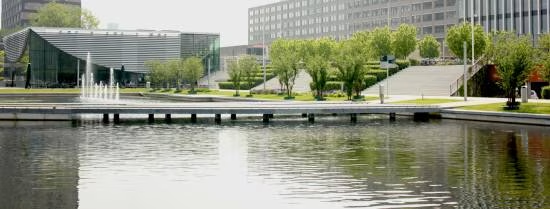Research on international legal preparedness in disaster relief; on effects of automation on care for animals and their habitats; investigating how the Geul river silt helps prepare for natural disasters and the resilience of single parents. All four studies will receive a NWO SGW Open Competition grant of EUR 50,000.
DisLex – Analysing the Features of Disaster Law Through Computational Text Analysis Methods
Dr. Clara Egger, Department of Public Administration and Sociology
Strengthening the resilience of our societies to disasters is a priority global goal. Key to such agenda is legal preparedness, namely the adoption of disaster law that organizes effective disaster response while safeguarding human rights and democratic governance. Despite international guidelines on how to best design such law, little is known about the quality of disaster law worldwide. DisLex fills this gap by using computational text analysis methods to create the first dataset comparing the features of disaster law in 100 countries over 10 years (2013-2023). DisLex opens new research avenues on the impact of legal preparedness on disaster resilience.
Connecting work automation to everyday environmental care: the case of fish farming
Dr. Francisca Grommé, Department of Public Administration and Sociology
Farmers are automating care of animals and their habitats, for instance, by predicting and automating feeding. But how does workplace automation influence agrifood workers’ experienced responsibilities for animals and their environment (‘environmental care practices’). Qualitative research at two high-tech fish farms will answer this question, with the aim of establishing an innovative, interdisciplinary research line in work organisation research. The ground-breaking aspect is that fish farms potentially make visible the effects of automation on relations between workers, animals and habitats, instead of focusing on human autonomy. The results can support technology design and contribute to policy debates about farming reforms.

Sludge Matters! An ethnographic exploration of post-flood river sludge and its implications in socioecological relations
Dr. Irene van Oorschot, Department of Public Administration and Sociology
This ethnographic research explores transformations of the socioecological relations in Valkenburg at the Geul due to the 2021 floodings. Highlighting river sludge – the floods’ reminder and material remainder - this study analyses how sludge has informed, transformed, and deformed socio-ecological relations within the Geul riverscape. It develops an approach to post-disaster landscapes attuned to the persistent materialities after such a disaster and the ways these impinge on nature-culture relationships. Furthering disaster and post-disaster research by adopting a post-humanist lens, this study will help decision-makers and other stakeholders improve future preparedness for natural disasters in the Netherlands and beyond.
About NWO Open Competition
With the NWO Open Competition - SGW, the NWO Division for Social Sciences and Humanities wants to give researchers the opportunity to conduct research on a topic of their own choice, without thematic preconditions. The funding instrument is intended for a broad group of researchers in different phases of their scientific career.
- Researcher
- Researcher
- Researcher
- More information
Marjolein Kooistra, communications ESSB | kooistra@essb.eur.nl | 06 83676038

